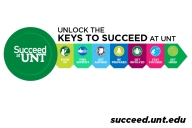You have /5 articles left.
Sign up for a free account or log in.
A group of students, many of them minority students, held a protest Monday at Emory University over chalked messages that appeared at many places on campus over the weekend in support of Donald Trump’s presidential campaign. The Internet has not been kind to the students (or Emory).
The demonstration, in which students reportedly said the chalkings made them feel unsafe, eventually moved from the quad to the administration building in search of James Wagner, Emory’s president. Wagner met with the students, and in an email to the campus afterward, he said, “They voiced their genuine concern and pain in the face of this perceived intimidation.”
“The students shared with me their concern that these messages were meant to intimidate rather than merely to advocate for a particular candidate, having appeared outside of the context of a Georgia election or campus campaign activity,” he wrote. “After meeting with our students, I cannot dismiss their expression of feelings and concern as motivated only by political preference or oversensitivity. Instead, the students with whom I spoke heard a message, not about political process or candidate choice, but instead about values regarding diversity and respect that clash with Emory’s own.”
Most of the chalked messages were limited only to the word “Trump” or “Trump 2016,” though some students also reported seeing “Build a Wall” and “Accept the Inevitable.” At some high schools and colleges, the word “Trump” has become a taunt used against minority students on campus, along with graffiti including the candidate's name and swastikas. But at Emory, while many would say “Build a Wall” is a taunt, most of the chalkings simply said “Trump 2016.”
Right-leaning websites and blogs were some of the first to pounce -- on students for what critics deemed excessive sensitivity and on the college's president and administration for taking the students seriously. But criticism spread all over. Even headlines from national news organizations like CBS, which proclaimed, “University students 'in pain' after 'Trump 2016' chalked on campus,” seem to have a bit of an edge to them. Even Trump-hating Gawker chimed in to say simply, “Don’t go to Emory.”
Many of those criticizing the Emory students said the messages were par for the course in a campaign year and that if students can chalk their support for Hillary Clinton or Bernie Sanders, they should be able to chalk support for Trump. Emory is now stressing that it has no plans to take action against anyone for chalking, and that concerns were not because of the views of the person who chalked but because some of the pro-Trump statements were not made in places where chalking is permitted.
Now protesters are taking to social media to say critics have mischaracterized their actions.
“No one at Emory is afraid of chalk,” wrote one student who said she participated in the protest. “Students are upset by the environment of hatred that is created by seeing 'Trump 2016,' 'Accept the inevitable' and 'Build a wall' written all over campus and dealing with an administration that doesn't seem to care about what that implies for those who hold identities Trump has continuously been attacking throughout his campaign.”
Many students, at Emory and elsewhere, are uniting behind a sort of social media form letter expressing support for the Emory protesters. Dozens on Facebook and Twitter have posted something identical or similar to a statement reading: "If you'd like to stand in solidarity with us, please use this as your status: 'I, a [identity] from [college/university/state/country], stand in solidarity with the Black and Brown students at Emory, against the intimidation, lies and deeply rooted racism that people of color continue to face -- on their campus, nationwide and globally. #1969not1836 #BlackBrownAndHere.'"
Several students have also said that they received death threats after the protest.
One student who says he participated in the protest wrote, “As many people have pointed out, yes, Trump supporters have the right to chalk and campaign for this racist and fascist presidential candidate. But we also have a right to protest it …. None of the protesters wanted to deny anyone 'freedom of speech.' People were concerned that there was vandalism and it took hours before the chalkings were washed out.” He went on to write that the protest Monday was about a host of issues in addition to the chalked messages, including “expanding the funding for undocumented students, hiring more faculty of color, and generally expanding resources for students of color.”
Still, as Josh Goodman, a member of the Emory College Republicans, pointed out on the Fox News show The O’Reilly Factor, it was the Trump chalkings that sparked these protests: “I’ve seen a lot of support for Bernie Sanders in chalk, I’ve even seen pro-Black Lives Matter support,” which “raised no controversy.”
Goodman also went on to express disapproval of the president's response to the students. “The president, I think he legitimized their claim,” he said. “I was pretty disappointed. I expected President James Wagner to come out fiercely against this, to stand for First Amendment rights, to stand for this student’s rights to support one of our two major parties’ political candidates, a front-runner, and he didn’t.”
So far, it appears that no student had claimed responsibility for the chalkings.
The Emory College Republicans Executive Board supports Ted Cruz and has previously condemned Donald Trump, writing in a statement, “It is not American to advocate for discrimination against one’s countrymen based on faith or national origin.”
Zak Hudak, editor in chief of the student newspaper, The Emory Wheel, put out a call in a letter he posted for students to share their opinions with him as the paper’s editorial board works its way toward a stance. “I’ve heard criticisms from this very pro-speech side that it’s wrong for me to even acknowledge the feelings of fear and so forth of the protesters,” he said. The other side reached out as well, calling for “more extreme measures” and saying “you just don’t understand this.”
Speaking for himself, and not for the Wheel, Hudak said, “I personally have taken a very strong stance in favor of the need to maintain free speech and open discourse even when that’s painful.” But, “I’m in no way against these protesters …. If we’re going to have freedom of speech, that means we have the freedom to talk about whether we have freedom of speech.”
“This is genuine,” Hudak said. “This is a genuine thing [the protesters] are feeling. They’re afraid, they’re hurt, they’re not making this up. Nonetheless, I have to default to the paramount placement of freedom of speech. There are just no means by which you can say you can’t support a presidential candidate on campus.”
In a statement sent to Inside Higher Ed, the university said it “has not identified the individual(s) responsible for placing chalking graffiti in various campus locations earlier this week, and no follow-up action is planned related to the incident. It’s important to note that chalkings by students are allowed as a form of expression on the Emory campus but must be limited to certain areas and must not deface campus property -- these chalkings did not follow guidelines -- that’s the issue regarding violation of policy, not the content."








